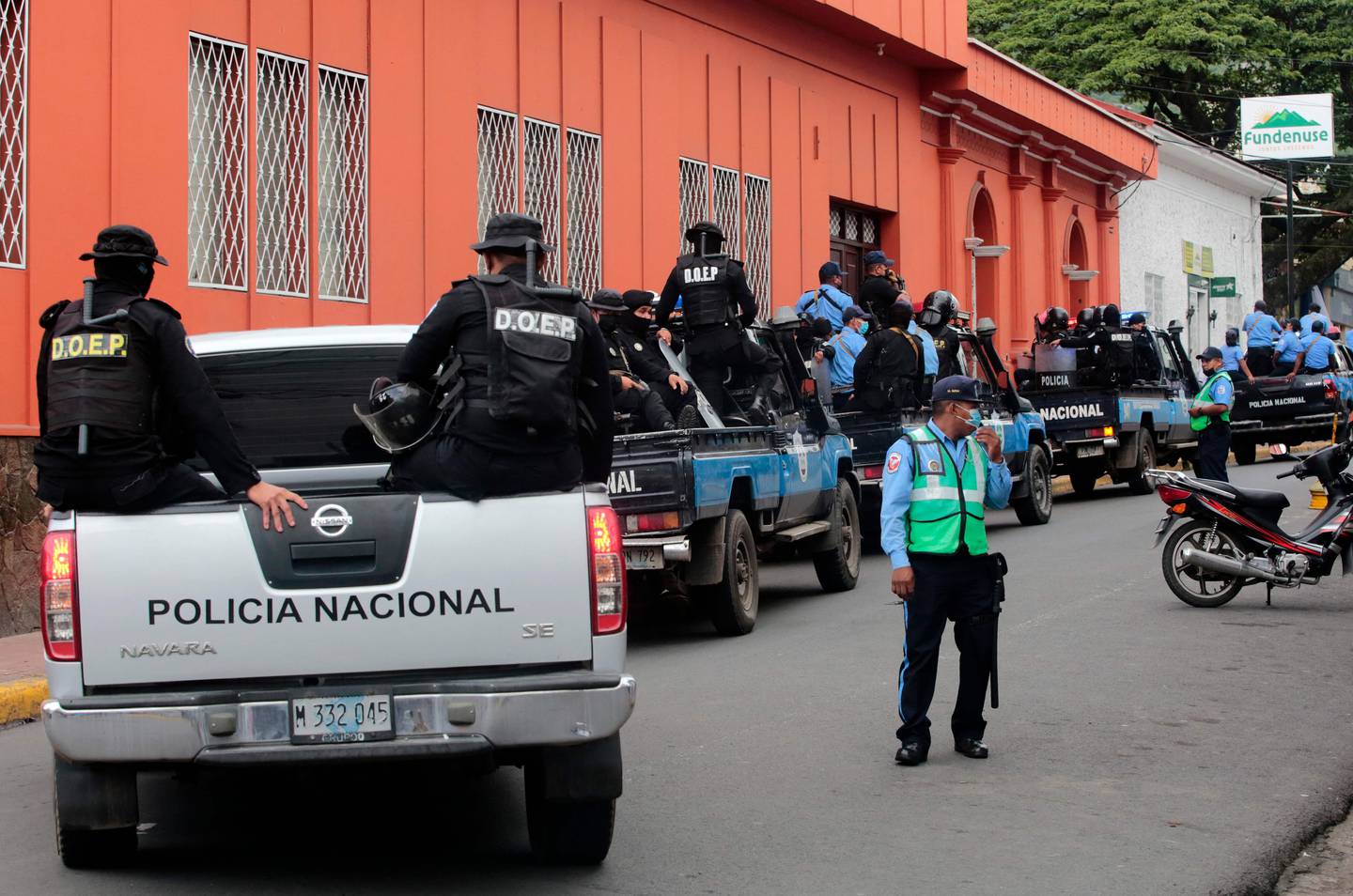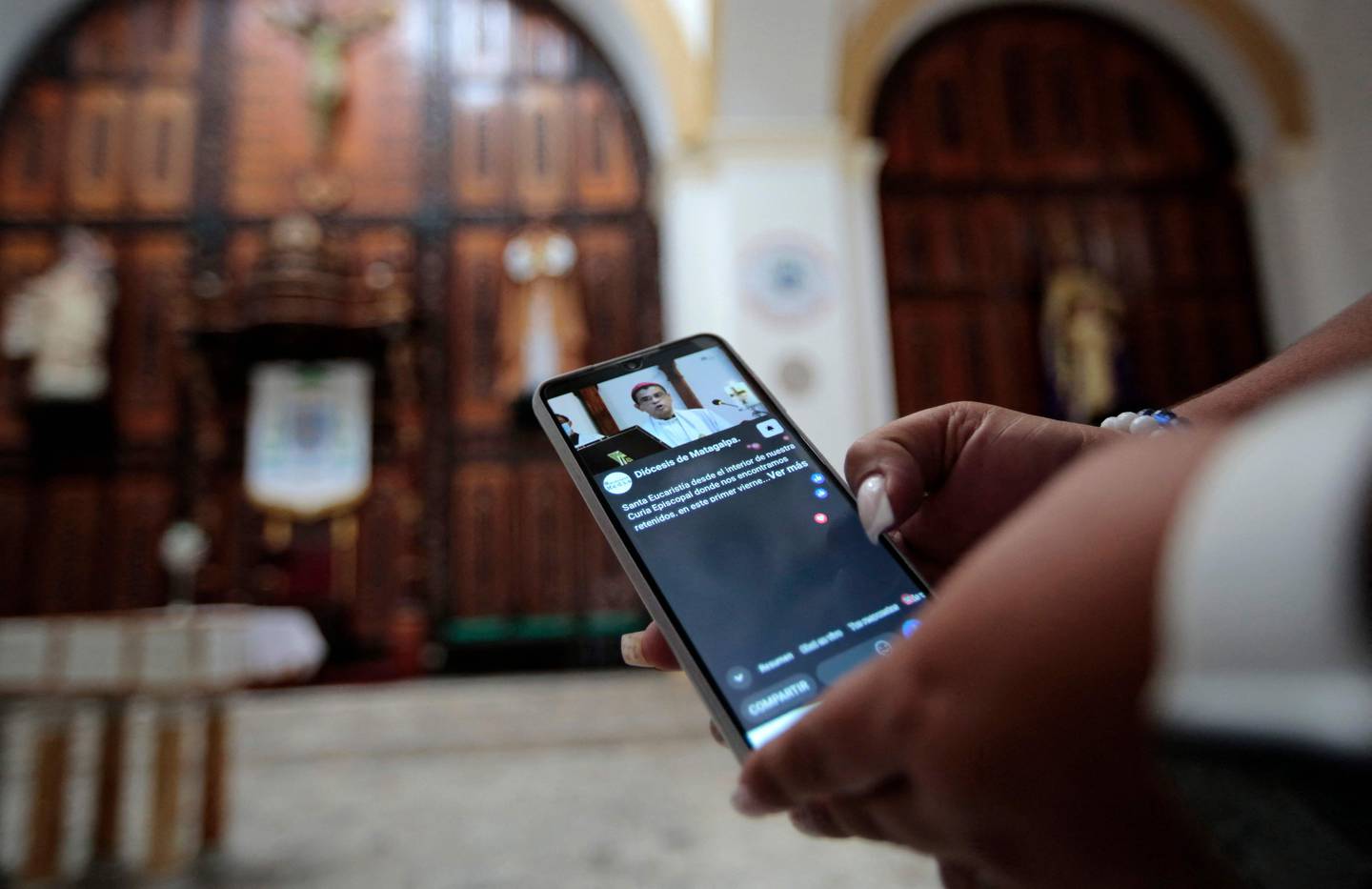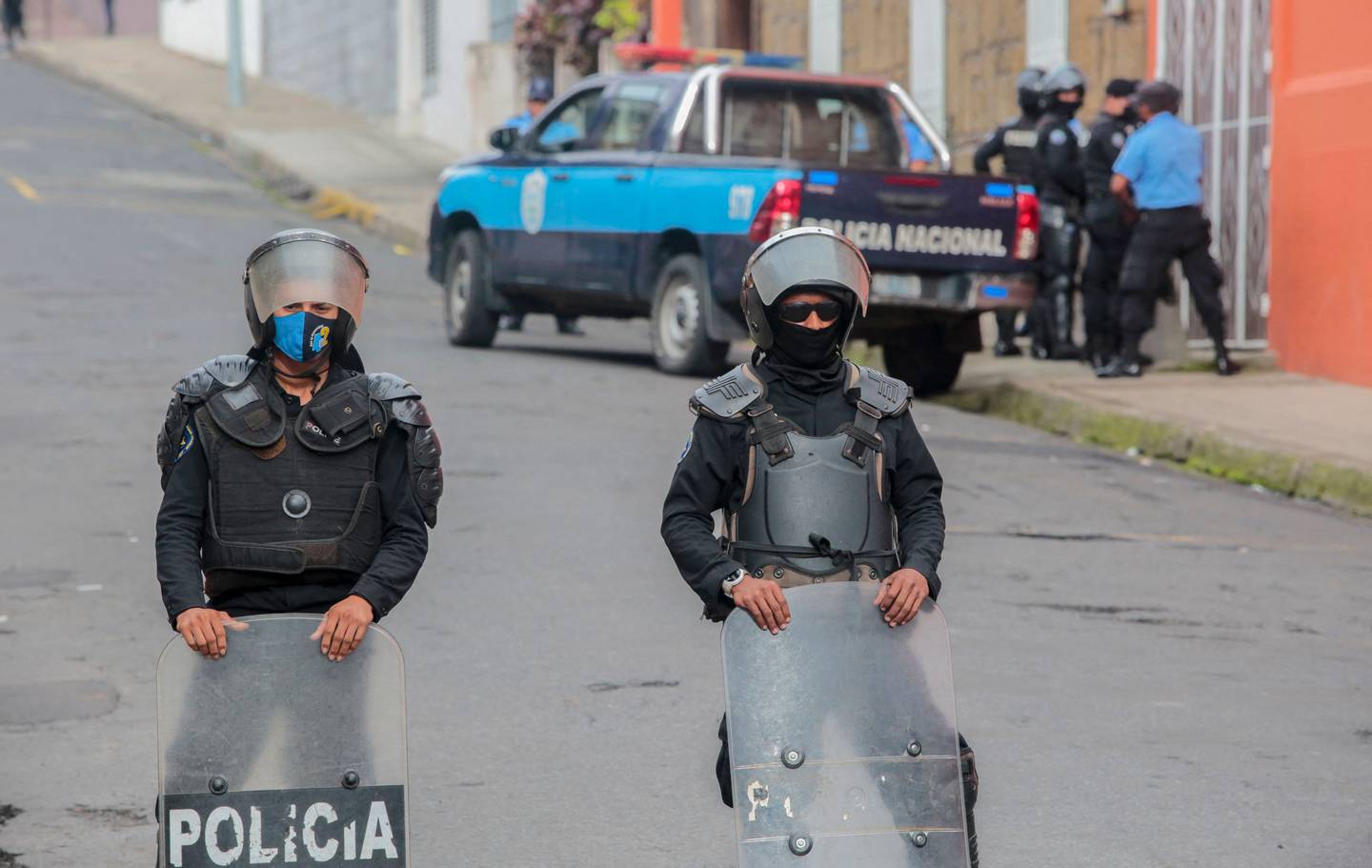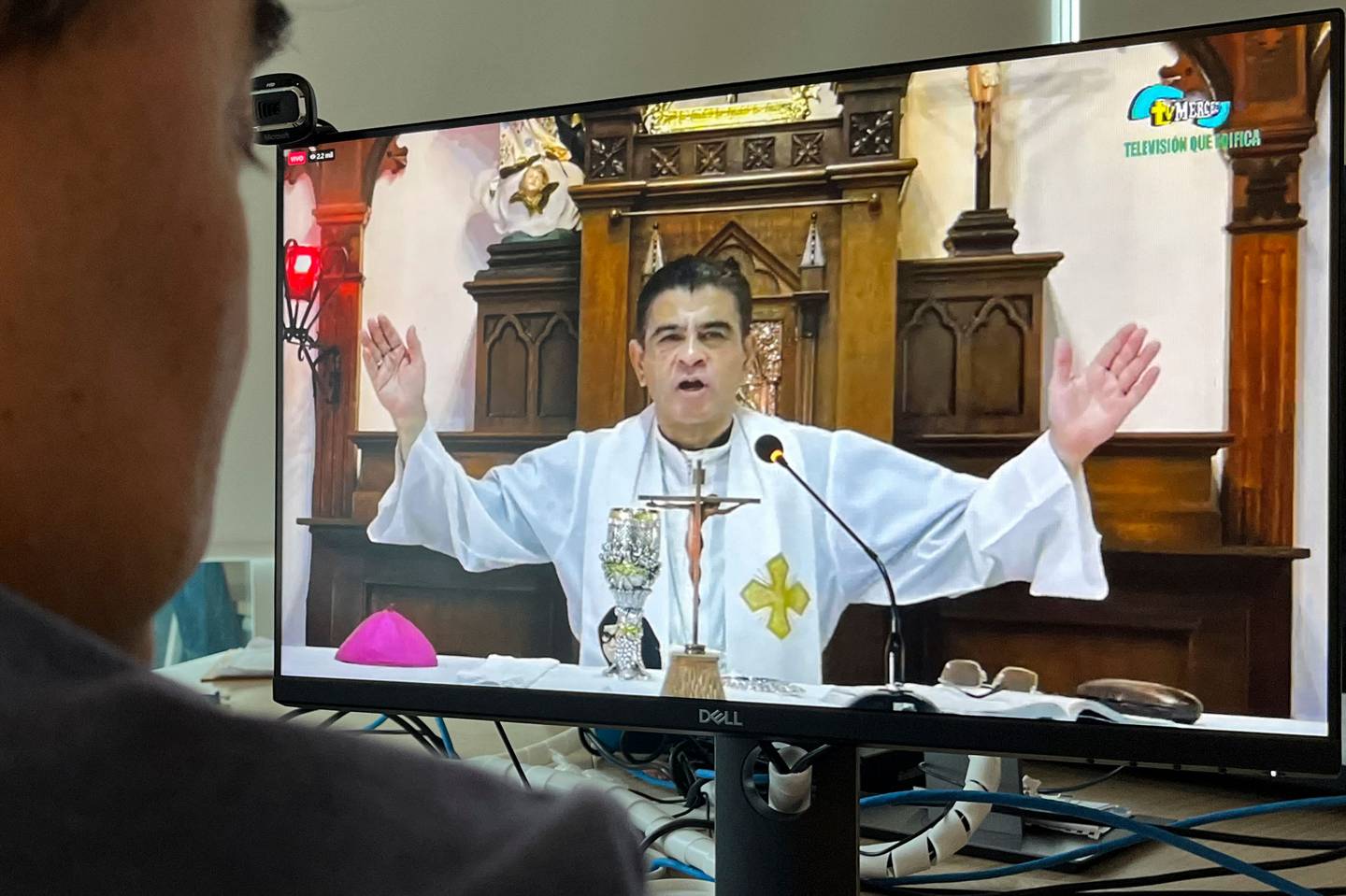Nicaraguan Police accused this Friday the Diocese of Matagalpa, who drives Bishop Rolando Alvarez besieged in the curia by the security forces for two days, of “inciting hatred” to destabilize the country and announced the opening of an investigation against what he considered “criminal acts”.
“The high authorities of the Catholic Church, Diocese of Matagalpa, headed by Bishop Monsignor José Rolando Álvarez, (…) are trying to organize violent groups and inciting them to carry out acts of hatred against” the government, the police said in a statement. .
Álvarez, critic of the government of Daniel Ortega, denounced this Friday that the police are besieging the episcopal curia of Matagalpa, where he lives, in the north of Nicaragua.
“The circulation route in front of our curia is closed and blocked by the National Police. The main door, like the exit garage, is also blocked by riot police,” the prelate reported from inside the curia, during a mass broadcast on Facebook.
The police, for their part, stated that they are using “their status as religious leaders” and the “media and social networks” to create “anxiety”.

They cause “an atmosphere of anxiety and disorder, altering the peace and harmony in the community with the purpose of destabilizing the State of Nicaragua and attacking the constitutional authorities,” he noted.
The police announced that they had initiated “an investigation process with the aim of determining the criminal responsibility of the persons involved in the commission of these criminal acts”, and that they had reported the events to the Public Ministry (prosecutor’s office) and the Judiciary.
Álvarez, a member of the Episcopal Conference of Nicaragua (CEN), said that he remains inside the curia along with six priests and six lay people.
The 55-year-old priest denounced that he began to be harassed on Thursday, after protesting against the closure of several Catholic stations and the harassment that, according to him, exists against the Catholic Church.
The bishop has demanded that religious “freedom” be respected in his masses and has accused the government of wanting “a silent church.”

The investigation against him was announced hours after the vice president and wife of Ortega, Rosario Murillohinted that the bishop’s criticism could be considered a “crime.”
What it does is “generate discredit towards those institutions that deserve respect (and that) is also a crime, it is a sin against spirituality,” he warned.
The bishop has not yet reacted to the accusations, but in a Facebook broadcast he thanked the Archdiocese of Managua, presided over by Cardinal Leopoldo Brenes, other priests and the Latin American Episcopal Council (Celam) for their solidarity.
Nicaraguan priests have been heavily criticized by the government since the 2018 opposition protests, for having given shelter to protesters who were injured or fleeing the repression of the demonstrations.
“Let’s remember that he led the failed coup together with other priests,” according to the pro-government deputy Wilfredo Navarro.
According to the Inter-American Commission on Human Rights (IACHR), the repression left 355 dead. Some 190 opponents are in prison accused of “undermining national integrity” and other crimes.
Ortega considered the protests as part of a failed coup promoted by the opposition with the support of Washington, in which, he said, the bishops were complicit.

On Monday, Álvarez denounced the closure of five radio stations in his Diocese in Matagalpa by the authorities, for alleged illegalities that he denies.
The closure of these media is added to the closure, last June, of the Episcopal Conference channel, as well as TV Merced of the Diocese of Matagalpa and the Catholic channel San José de Estelí (north).
Ortega, a 76-year-old former guerrilla, has governed since 2007 after three successive re-elections. The last one was in November 2021.
Last March, the Vatican reported that Nicaragua withdrew its nuncio in Managua since 2018, Waldemar Sommer, the approval to remain in the country.
Daniel Ortega’s dictatorship sticks with a Catholic priest and accuses him of inciting hatred

